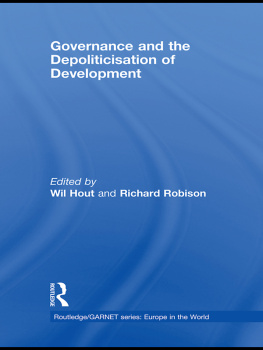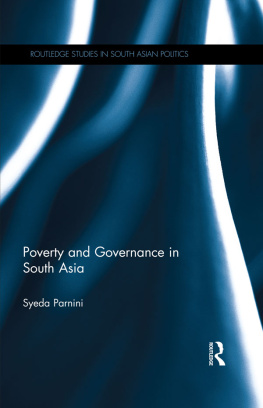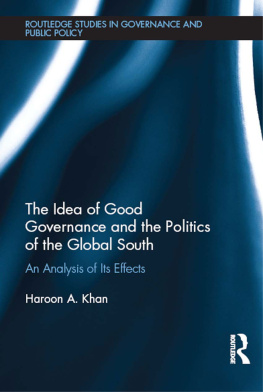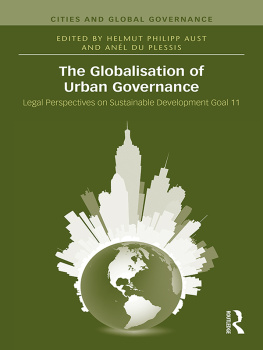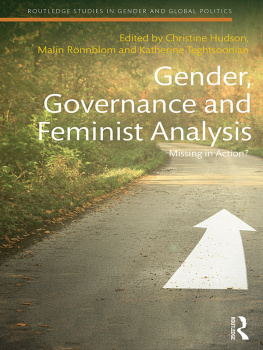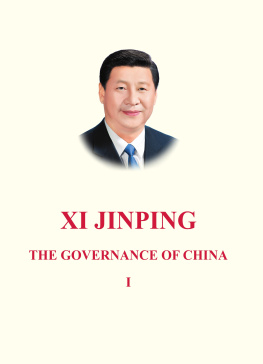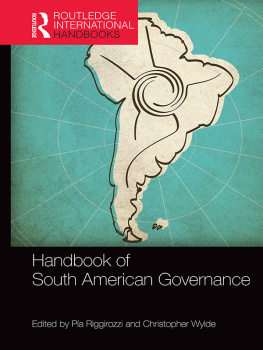Wil Hout - Governance and the Depoliticisation of Development
Here you can read online Wil Hout - Governance and the Depoliticisation of Development full text of the book (entire story) in english for free. Download pdf and epub, get meaning, cover and reviews about this ebook. year: 2009, publisher: Routledge, genre: Politics. Description of the work, (preface) as well as reviews are available. Best literature library LitArk.com created for fans of good reading and offers a wide selection of genres:
Romance novel
Science fiction
Adventure
Detective
Science
History
Home and family
Prose
Art
Politics
Computer
Non-fiction
Religion
Business
Children
Humor
Choose a favorite category and find really read worthwhile books. Enjoy immersion in the world of imagination, feel the emotions of the characters or learn something new for yourself, make an fascinating discovery.
- Book:Governance and the Depoliticisation of Development
- Author:
- Publisher:Routledge
- Genre:
- Year:2009
- Rating:4 / 5
- Favourites:Add to favourites
- Your mark:
Governance and the Depoliticisation of Development: summary, description and annotation
We offer to read an annotation, description, summary or preface (depends on what the author of the book "Governance and the Depoliticisation of Development" wrote himself). If you haven't found the necessary information about the book — write in the comments, we will try to find it.
This book is about the way governance has become the new orthodoxy of development, following earlier failed attempts at building working market economies through policy reform in developing countries.
Considering how its proponents define good governance, the contributors to this volume assess why programmes of governance building in developing countries have proven to be no less problematic than the previous agendas of market reform.
Governance and the Depoliticisation of Development challenges ideas that deeper political and social problems of development may be addressed by institutional or governance fixes. It examines the principles and prescriptions of good governance as part of larger conflicts over power and its distribution.
The volume provides:
- a series of case studies from Latin America, Middle East and Asia
- a link to current theorising on neoliberalism and the post-Washington Consensus
- a focus on governance at the global and national levels from a comparative perspective
The collection will be essential reading for researchers and scholars of international political economy, governance studies and political science.
Wil Hout: author's other books
Who wrote Governance and the Depoliticisation of Development? Find out the surname, the name of the author of the book and a list of all author's works by series.

